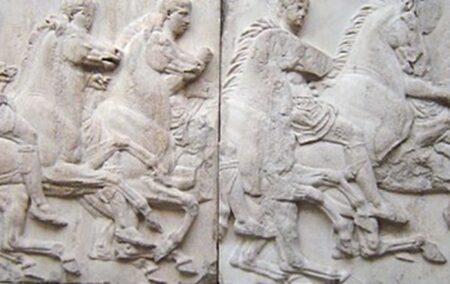The Brexit negotiations between the United Kingdom and the European Union (EU) might be in for an unexpected and unusual confrontation in the reopening of a controversial and age-old source of tension – the fate of the Elgin Marbles.
Tensions came to the fore after a demand for the return of cultural artefacts was added to the draft of the negotiating mandate of the EU.
Greece has long called for the return of the marble sculptures removed by Lord Elgin from the Parthenon in Athens in the 19th century, when Greece was under the rule of the Ottoman Empire. The sculptures have been on display in the British Museum in London since 1817, with British authorities opposing Greece’s call.
The EU has denied that the Elgin Marbles are the subject of the insertion into the draft negotiation mandate, claiming the clause seeking “return or restitution of unlawfully removed cultural objects to their countries of origin” are intended to combat the illegal trade of cultural and historic artefacts.
It is understood that Greece requested the insertion of this clause, supported by Italy.
The raising of the issue comes after an indication by the culture minister of Greece that the Greek government would intensify efforts to have the sculptures also known as the Parthenon Marbles returned to Greece. The Greek government anticipates the negotiations of Brexit to add weight to these efforts. Greece has long held the position that the sculptures were stolen, while the British claim is that Lord Elgin purchased the sculptures through legal contract from Ottoman governing authorities.
Commenting on the draft EU document, a spokeswoman for the UK government said that the position of the government remains that the sculptures are ‘the legal responsibility of the British Museum’, adding that the matter would not be ‘up for discussion as part of our trade negotiations’.

